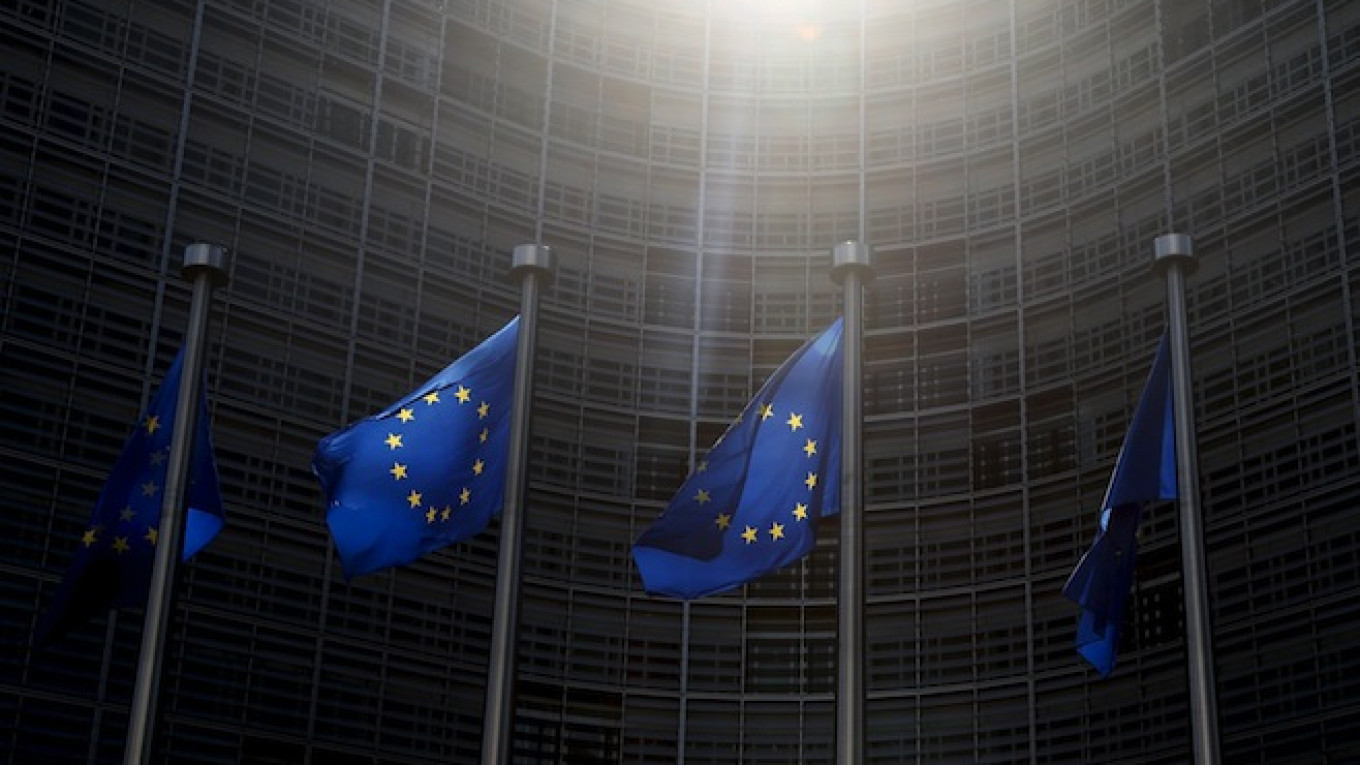Russia's economic crisis, caused in part by EU sanctions on Moscow over its actions in Ukraine, could cost Europe up to 100 billion euros ($113 billion), German newspaper Die Welt reported Friday, citing a study by the Austrian Institute of Economic Research.
“The fall in exports [to Russia], which we saw in its worst manifestation last autumn, is currently the reality. Unless the situation changes radically, we will face our most pessimistic scenario,” Die Welt quoted researcher Oliver Fritz as saying.
The experts attribute the decline in European exports to Russia to the country's economic contraction — exacerbated by EU sanctions and forecast to reach around 3 percent this year — as well as Russia's counter-sanctions on food imports from the EU, which particularly affected Spain, the Netherlands and Italy.
Russia's crisis could also cost Europe around 2 million jobs, the report said. Germany stands to be affected the worst, with 465,000 jobs potentially lost, followed by Poland with 335,000 jobs under threat, according to the experts' estimates.
The report shows that European Union economies are more vulnerable to Russia's economic recession, which has been spurred on by Western sanctions, than European analysts previously forecast.
The latest report from the European Commission — the EU's executive body — said that the impact of sanctions on EU economies was “relatively small and easily manageable,” according to the newspaper.
The Russian economy has been slowing since 2013, but the slide was severely aggravated last year by a steep drop in the price of oil, Russia's main export, and Western sanctions.
The U.S. and EU struck Russian individuals and companies with several rounds of sanctions in 2014 over Moscow's involvement in the Ukraine crisis. Russia in response imposed a ban on a range of Western food imports in August last year.
The foreign ministers of the European Union are expected to ratify a decision to extend sanctions against Russia for another six months at a meeting Monday, news agency Reuters reported earlier. The agreement to extend the sanctions was reached by EU representatives on Wednesday.
A Message from The Moscow Times:
Dear readers,
We are facing unprecedented challenges. Russia's Prosecutor General's Office has designated The Moscow Times as an "undesirable" organization, criminalizing our work and putting our staff at risk of prosecution. This follows our earlier unjust labeling as a "foreign agent."
These actions are direct attempts to silence independent journalism in Russia. The authorities claim our work "discredits the decisions of the Russian leadership." We see things differently: we strive to provide accurate, unbiased reporting on Russia.
We, the journalists of The Moscow Times, refuse to be silenced. But to continue our work, we need your help.
Your support, no matter how small, makes a world of difference. If you can, please support us monthly starting from just $2. It's quick to set up, and every contribution makes a significant impact.
By supporting The Moscow Times, you're defending open, independent journalism in the face of repression. Thank you for standing with us.
Remind me later.


